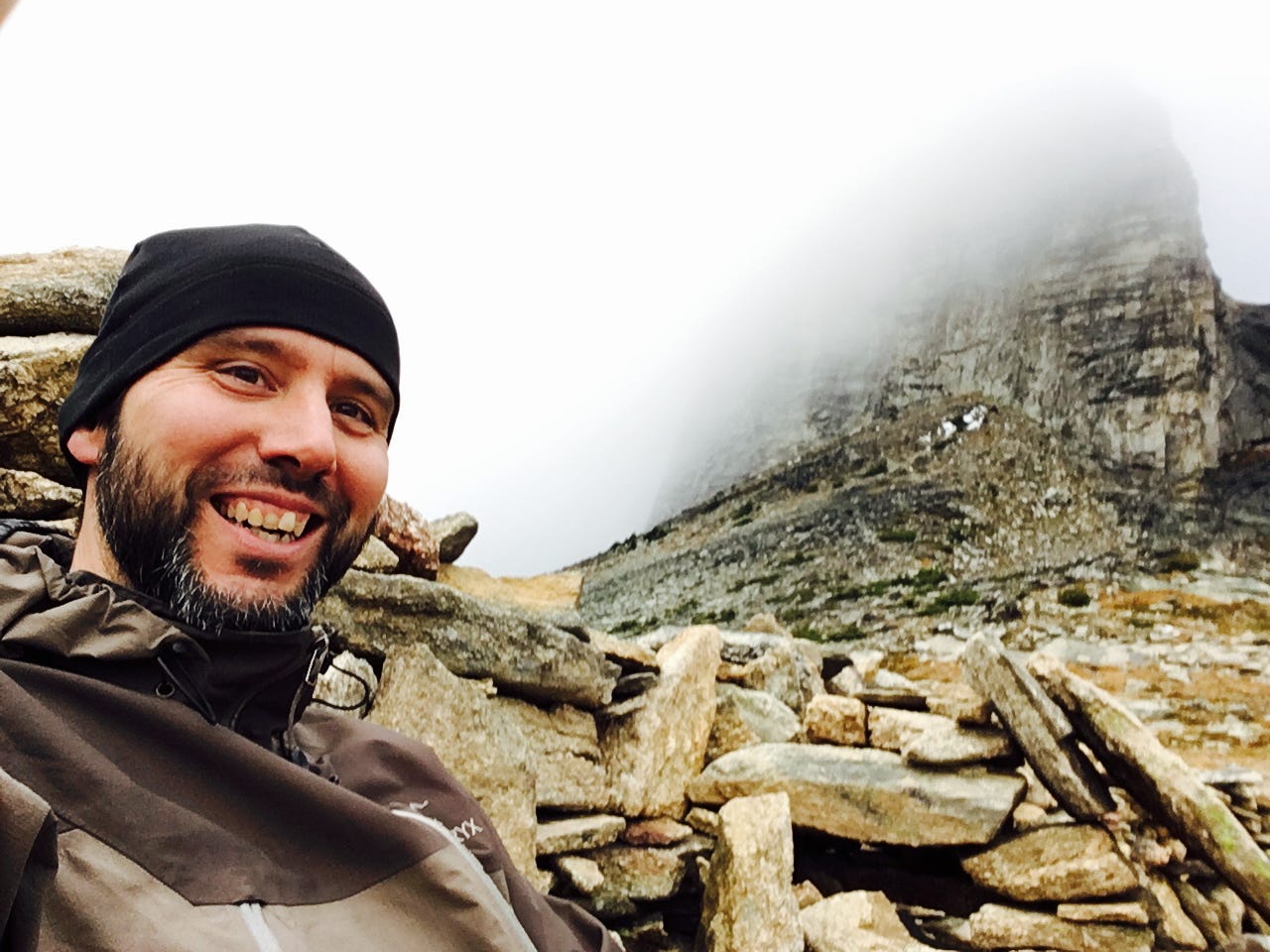Self-Compassion Can Help Us Keep Climbing
How softening self-judgment can build endurance, cultivate inner strength, and help us reach our peak in a more sustainable way.
In my early twenties, I spent many of my weekends scrambling up mountains. It involved taking steep, winding, indistinct trails with challenging sections exposed to steep drops. I loved the solitude of these climbs and the thrill of summiting tall peaks.
But as often than not, I didn’t make it to the top.
Sometimes, a storm moved in over the ridgeline. Other times, my legs gave out, or the trail disappeared into a risky mountain goat route. I’d turn back, return to the valley, and then spend days replaying the decision. I wasn’t fit enough. I wasn’t brave enough. I should have pushed through.
Looking back, I realized I wasn’t failing. I made smart choices that kept me safe. I trusted my instinct, exercised discernment, and honoured my limits.
But at the time, I didn’t have a framework for seeing those decisions as anything but shortcomings.
And this is where so many of us find ourselves—not just on mountains, but in boardrooms, classrooms, hospitals, homes.
Success, as We've Been Taught
In the professional world (and perhaps the world as a whole these days), success is measured by outcomes, accomplishments and visible wins. The summit is the goal. If you don’t reach it, it’s easy to feel something is wrong: with your effort, your ability, your will. Even with you.
So we push. We criticize. We strive to achieve under the illusion that self-judgment sharpens us.
But the opposite is true.
Self-judgement may come off as discipline, but more often it’s a kind of erosion that slowly wears down confidence, creativity and resilience. It can narrow our perspective and make every mistake a chance to judge our worth.
To be clear, self-compassion isn’t about letting ourselves off the hook. It’s about changing our inner environment so we can grow in a different, healthier way.
Self-Compassion: The Path Less-Travelled
Where self-criticism erodes and constricts, self-compassion builds fertile soil and expands our horizons. It opens new paths for clearer thinking, steadier action and a deeper kind of courage.
To be clear, self-compassion isn’t about letting ourselves off the hook.
It’s about changing our inner environment so we can grow in a different, healthier way. It means recognizing that being human includes missteps, fatigue, and fear—and meeting those moments with curiosity and care instead of aggression.
This isn’t an abstract concept.
Research shows that people who practice self-compassion are more motivated, more accountable, and more resilient in the face of challenge.
But beyond the data, there’s a longstanding truth at work here—something the mystics and teachers have shared for centuries: the way you speak to yourself becomes the spirit with which you move through the world.
Swapping out harsh inner monologues with kinder, more generous language creates space for both higher performance and deeper presence.
The Soul of the Climb
Eventually, I began to approach those climbs differently.
I still valued the view from the top. But I stopped judging the worth of a journey by whether or not I reached it.
I started to notice how I felt on the way up. What thoughts were present? Did I need a rest? What voice was pushing me to take that next step?
Interestingly, this also helped me have a richer experience along the way. It was OK to just be on the trail in nature. I could appreciate the beauty around me without being so relentlessly focused on achieving the goal.
After all, as Robert Pirsig writes in Zen and the Art of Motorcycle Maintenance: “To live only for some future goal is shallow. It’s the sides of the mountain that sustain life, not the top.”
The surprising part of that shift? I didn’t lose my ambition. I gained endurance. I didn’t lower the mountain. I became more capable and present while walking the path.
Though we might wish it to be so, growth isn’t always linear. That the trail winds for a reason. Sometimes, turning back isn’t a failure but wisdom in disguise.
The summit will always be there. But our inner landscape—the thoughts we carry, the stories you tell ourselves, the quality of our presence on the path—that’s where the real elevation gain happens.
An Inquiry
To those who navigate busy lives and high-stakes environments, I ask:
What would it look like to pursue outer excellence without inner violence?
What if your success didn’t mean rejecting your softness, but embracing it?
The summit will always be there. But our inner landscape—the thoughts we carry, the stories you tell ourselves, the quality of our presence on the path—that’s where the real elevation gain happens.



